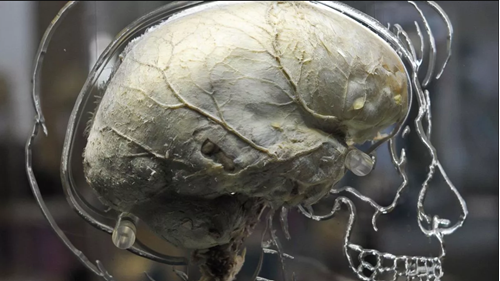Poor spatial navigation 'could predict Alzheimer’s disease decades before memory loss'
Scientists hope the findings may see the development of a diagnostic support tool for the NHS - as initial signs can be spotted 20 years before memory loss begins
Poor spatial navigation could be a predictor of Alzheimer’s disease more than 20 years before memory loss symptoms start, a new study has suggested.
The research, led by UCL, found that people at risk of the disease had impaired spatial navigation - which can affect attention, memory, perception, and decision-making - before problems with other mental functions, including memory. Scientists hope the findings may lead to the development of a diagnostic support tool for the NHS in the coming years.
Virtual reality was used to test the ability of 100 asymptomatic adults aged 43-66 around 25 years younger than their estimated age of dementia onset to determine and maintain a route from one place to another. People at greater risk of developing Alzheimer's disease, regardless of why, were impaired on the VR navigation task, without a corresponding impairment on other cognitive tests.
The researchers also found that there was a strong gender difference in how people performed, with the impairment being observed in men and not women. Findings suggest that impairments in spatial navigation may begin to develop years, or even decades, before the onset of any other symptoms, the experts say.
All people involved in the study, who were part of the PREVENT-Dementia prospective cohort study, had a hereditary or physiological risk of Alzheimer's disease. This was either due to a gene that puts them at risk of the condition, a family history of Alzheimer's, or lifestyle risk factors such as low levels of physical activity.
Led by Professor Dennis Chan, the study used a test designed by Dr Andrea Castegnaro and Professor Neil Burgess in which people were asked to navigate within a virtual environment while wearing VR headsets.
Dr Newton added: "We are now taking these findings forward to develop a diagnostic clinical decision support tool for the NHS in the coming years, which is a completely new way of approaching diagnostics and will hopefully help people to get a more timely and accurate diagnosis."
"This is particularly important with the emergence of anti-amyloid treatments for Alzheimer's, which are considered to be most effective in the earliest stages of the disease. It also highlights the need for further study of the differing vulnerability of men and women to Alzheimer's disease and the importance of taking gender into account for both diagnosis and future treatment."
The research was complied in collaboration with the University of Cambridge, funded by the Alzheimer's Society and an MSD research grant. Dr Richard Oakley, associate director of research and innovation at Alzheimer's Society, said: "One in three people born today will go on to develop dementia, and early and accurate diagnosis of the diseases that cause the condition are vital for people to access the right support, plan for the future, and receive appropriate treatment."
"Very early symptoms of dementia can be subtle and difficult to detect, but problems with navigation are thought to be some of the first changes in Alzheimer's disease. More work is needed to develop this technology, but it will be exciting to see how this research may offer a way to spot disease-specific changes early and help people living with dementia in future", he added.
Source: Mirror






































